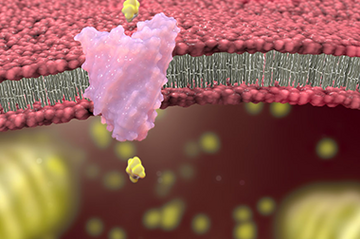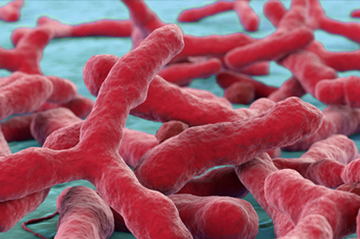The Role of n-3 PUFA on Muscle Mass and Function in Aging Humans
Bettina Mittendorfer, PhD
Washington University School of Medicine, Center for Human Nutrition, St. Louis, MO USA
Overview
The progressive atrophy of skeletal muscle in aging humans leads to reduced ability to generate and maintain muscle force. This loss of muscle mass and strength can negatively affect daily activities. This presentation reviews the results from recent studies that demonstrate protein intake above recommended daily amount does not appreciably increase protein synthesis. However, studies show that dietary supplementation with fish oil-derived from n-3 polyunsaturated fatty acids (PUFA) stimulates muscle protein synthesis and improves muscle mass and function in older adults.
Key points
Current nutritional recommendations for humans include protein intake of 1- 1.2 g/kg/day, however studies show that high protein intake is not an ideal strategy for building muscle mass in older adult.
- The stimulatory effect of protein intake on muscle protein synthesis is saturable.
- In a study of older men, high protein intake exceeding the RDA did not increase lean body mass, muscle performance, physical function or well-being measures.
- High protein intake does not enhance the effects of anabolic resistance training.
- Although high protein intake preserves lean body and muscle mass during weight loss, the effect is small.
- Studies show that high protein intake can have adverse effects on insulin sensitivity and increase the risk for Type 2 diabetes.
Marine n-3 PUFAs have hypertrophic and function enhancing effects in muscle:
- This hypertrophic effect is most likely due to an amino acid sensitizing effect via increased TOR signaling in muscle.
- The function-enhancing effect may be due to neuromuscular adaptations as well as increased mitochondrial function and cell structural support.
- Fatty fish consumption was directly related to hand grip strength in older adults.
- Studies of healthy, older adults with and without an exercise-training program who consumed up to 4 grams of fish oil per day (for differing amounts of time) had greater gains in muscle strength than those who did not supplement their diet with fish oil.
- Not all PUFA are equally effective; marine sources are more bioavailable than plant sources.
Clinical relevance
Fish-oil derived n-3 PUFAs are a potential new treatment modality to prevent and reverse the age-associated loss of muscle mass and function. Staving off sarcopenia can improve quality of life for seniors.
This document contains summaries of all presentations from the Companion Animal Nutrition Summit, held May 3-5, 2018 in Charleston, South Carolina. Please note that these summaries represent overviews of the presentations and may include opinions and research of presenters, which do not necessarily reflect those of the Nestlé Purina Petcare Company.
Produced by the Purina Institute, May 21, 2018


